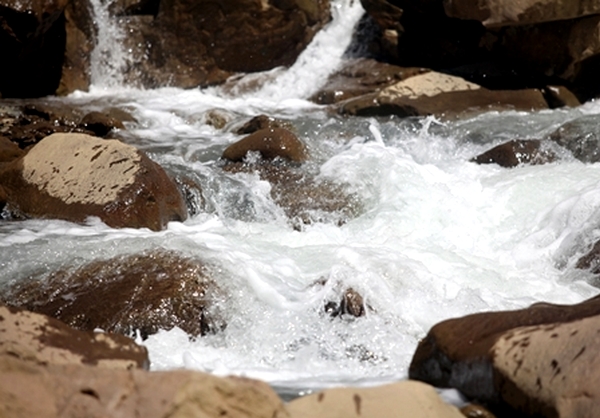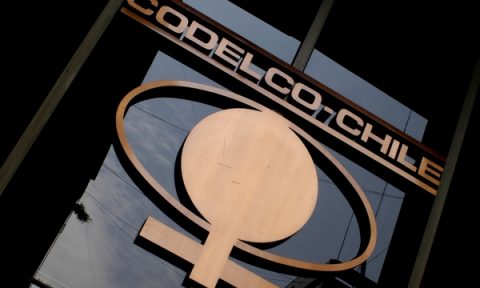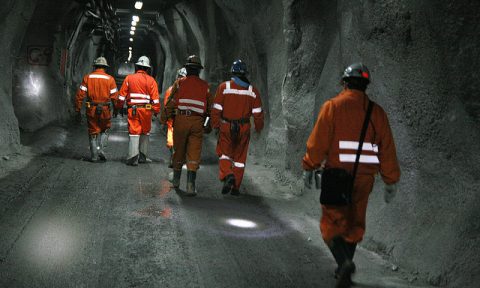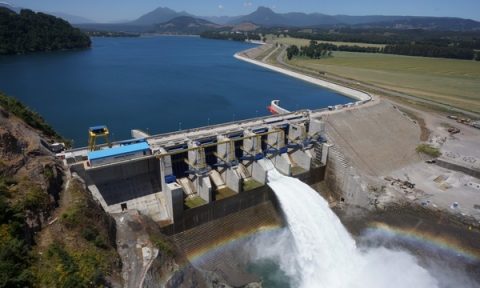Report would consider projects for $ 1,000 million to address water shortage

Changes to Water Code and the Constitution would be tuned and would enter the Congress in the next two weeks.
Three axes compose the report prepared by the Presidential Delegate for Water Resources, Reinaldo Ruiz, and which is in the hands of Michelle Bachelet since June.
The report contains a number of suggestions -said sources that have accessed the text-which are now being worked by the ministries. One of the highlights is an investment plan of over $ 1,000 million to address water shortage which have different areas of the country.
Investment Plan
The first part of the report refers to how to solve the problem associated with water scarcity. Investments to develop twenty works, some of which are intended to be prepared to store water when it becomes available in the future and thus respond to imbalances arise.
Here desalination plants, as an alternative to more permanent solution would be included especially in the north. Among other locations where it is suggested to install these units would be La Serena, Coquimbo and Petorca, although some parts of the region of BioBio would also be mentioned.
Furthermore, the construction of reservoirs of various sizes, as well as the recovery of about 800 dams of accumulation and regulation that are deprecated and dating from the time of Agrarian Reform, arises.
The total identified investment amount would exceed $ 1,000 million, a lead time of four years, say experts.
Improvements to the institutional
The second chapter of the report would be devoted to comments on the institutional framework for water, which are considered more than 40 institutions involved in the issue. Therefore, the proposal is to look at this point and reorder. In addition, there is a single authority responsible for this matter.
The document includes various proposals, as well as the creation of a Ministry of Water Resources, the installation of a sub-secretary under the MOP, which would be the option for the government is inclined. The third option would be to establish a committee of ministers, much like Australia or Brazil.
Legal Reforms
This section sets out reforms to the Water Code and constitutional reform announced by the president.
Under the first, the cross has been regarded parliamentary motion that collects initiatives in this regard submitted from year 90, many of which were not considered in the reform of 2005.
The Government believes that there is great potential for this initiative to be approved by the transverse support it has and the consensus that exists around this idea.
The proposal of the delegate would make that motion and transform it into a project of the Executive through indications, but recognizes the author of the initiative.
According to government sources, the changes are being worked, from the lines of the report, by a committee of ministers composed of holders of Public Works, Agriculture, Mining, Energy and Environment, who were part of the Council of Ministers for sustainability which met yesterday. The idea is to send to Congress next week or subsequent one, after distrital work.-
Among the indications to be made, it is included in the declaration of the Code which states that water is a national asset for public use it is understood in all its states, thus including glaciers and gaseous water (clouds).
However, the main changes are related to water rights. First, it is proposed restrict and limit under certain circumstances. Add to this the ability to extinguish them and their delivery is no longer in perpetuity.
A central point is put a limit on water rights. And although the report does not go into this detail, the debate within the government goes from fixing a maximum of 75 years, which is too much for some, up to 30 years, which is the usual length of a mining concession, for example.
Other ideas that have come out is not to allow rights that are not being used, to avoid speculation, and multiply by one thousand the amount of patents for non-use are traded. This would be impractical to maintain a right that is not being used.
Regarding the causes of extinction be considering, are the abuse of right to use or falsification of information, replicating the approach used in other countries, meaning that when a law is asking for a purpose and if it is detected that was used for another, would have grounds for termination.
In any case, understood explain within the indications to be made, which has to do with the time limits of a water right would extend only to new concessions and not current ones, not causal extension would be for everyone.
The government’s plan would be to add other projects in this package, linked to the control of the use of water rights and the law of glaciers.
As for the constitutional reform, they work on the project that President Bachelet joined in 2010 and made only one thing: take out of the Constitution the right of ownership of water rights, stating that the law governing its management, enabling changes to the Water Code.
People close to the government say that the body of this modification is almost ready and should join the Congress soon, maybe even next week.
Source: Diario Financiero











